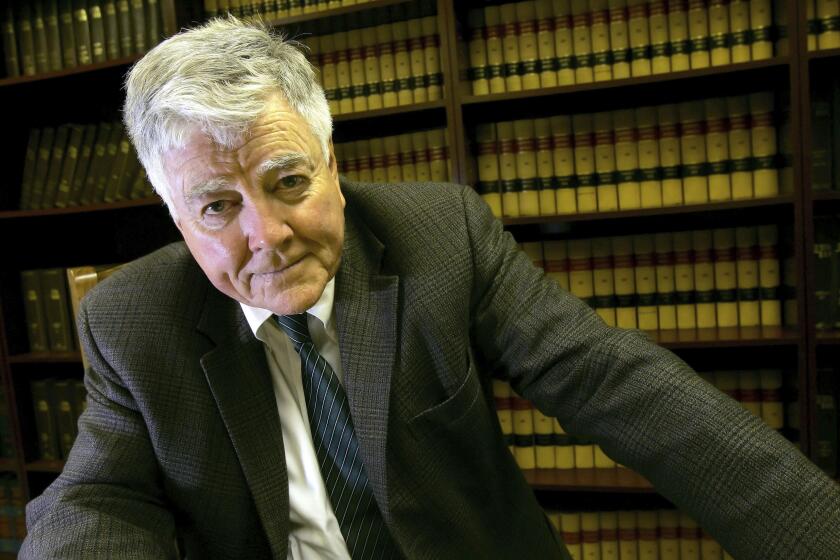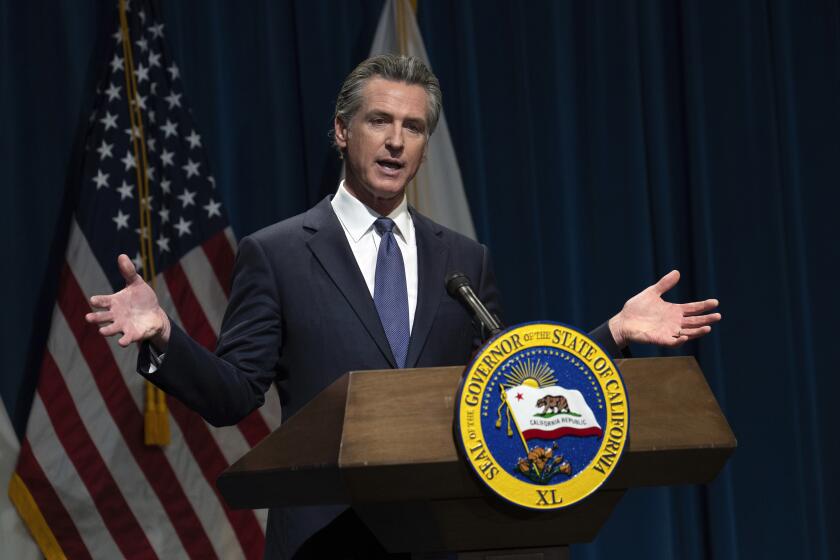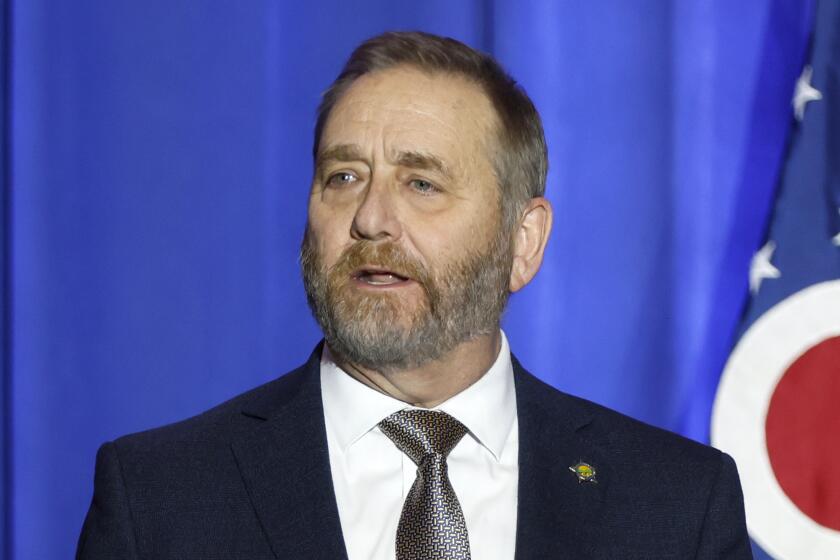Raising ’89 Flag Heralds Postwar Rapport
KABUL, Afghanistan-U.S. Marines hoisted Old Glory outside the American Embassy on Monday, reopening the mission and signaling that the United States and the international community have taken Afghanistan back into their ranks after 13 years.
“We are here, and we are here to stay,” the U.S. special envoy on Afghanistan, James Dobbins, declared at a dreary, rain-soaked ceremony. The same flag lowered during the 1989 U.S. withdrawal was restored to its staff in the rubble-strewn courtyard.
The U.S. return bolsters the restoration of diplomatic life begun by Iran, Britain, France, Russia, India and other major and regional powers hoping that the new government to be installed here Saturday will take maximum advantage of Afghanistan’s best chance for peace in 25 years.
Although mostly symbolic, since none of the missions is yet providing consular services or even liaison with Afghan leaders, the influx of reconnaissance teams is sending a positive signal to this society exhausted by war and shattered by past disappointments.
West Failed to Help When Soviets Left
Dobbins alluded to the outside world’s failure to support Afghanistan when the withdrawal of Soviet occupiers left U.S.-armed local warlords fighting to fill the power vacuum. Content to see the other superpower defeated, the United States and most other Western countries fled the country, which was then descending into lawlessness and bloodletting.
“The Afghan people paid a great price for this decade of neglect and abuse,” Dobbins said of the West’s having abandoned this country to chaos. And in a reference to the dangers of such diplomatic blindness, he conceded that the error exposed the West to the wrath of Islamic fundamentalists.
“On Sept. 11, the United States and the rest of the international community also paid a great price,” Dobbins said. Now wiser as to the risks of failing societies in transition, the United States will do its utmost, the envoy assured Afghans, to eradicate “the international black holes that become breeding grounds for organized crime and international terrorism.”
He was referring to the recently vanquished Taliban regime that gave shelter to Osama bin Laden and his Al Qaeda network, blamed for the attacks on the Pentagon and the World Trade Center.
The return of the diplomats, albeit at skeletal staffing levels, has intensified as the U.N.-brokered interim government for Afghanistan nears its inauguration. Pushtun tribal leader Hamid Karzai will become acting prime minister, overseeing a 29-member Cabinet expected to keep the country running until a spring convention of regional leaders to decide Afghanistan’s next steps.
A functioning leadership is essential for channeling aid and reconstruction assistance, Dobbins and other diplomats have insisted.
A veteran trouble-shooter with experience in Haiti, Somalia, Bosnia-Herzegovina and Kosovo, Dobbins said the role of U.S. deputy chief of mission will rotate among the State Department employees already here until a permanent appointment is made in the near future. The Bush administration will name an ambassador after diplomatic relations are formally restored between Washington and Kabul--expected shortly after Saturday’s inauguration. But Dobbins said it could take months for the new envoy to show up because of the lengthy confirmation process.
The last U.S. ambassador to Afghanistan, Adolph Dubs, was kidnapped by Islamic militants in 1979 and killed during an abortive rescue mission. The embassy worked at a reduced level for another decade before Marines lowered the flag Jan. 30, 1989.
A local staff of about 60 men has been guarding the compound since then, weathering successive bombardments and anti-American protests. Some of the remaining local employees attended the flag-raising ceremony, many with their young sons waving tiny U.S. flags as the battered compound stirred from its slumber.
More Diplomats Expected by Saturday
During a visit to Kabul, the U.N. special envoy for Afghanistan, Lakhdar Brahimi, last week urged all nations with an interest in a peaceful and stable Afghanistan to jump-start their idled diplomatic missions.
“If Afghanistan is to take advantage of this golden opportunity, when the eyes of the world are upon it, that requires the political will and assistance of the international community in supporting the process of peace and stability,” Brahimi said. He added that “a large number of countries” have signaled that they will have some form of diplomatic representation here by Saturday, when the United Nations will oversee a ceremonial transfer of power from the Northern Alliance guerrillas to the interim authority named in Germany earlier this month.
In addition to providing the eyes and ears of the global community to ensure that this country’s rival factions don’t resume fighting, the returning envoys are expected to help assess reconstruction needs before next month’s donors conference.
They are also serving as liaisons with the interim authorities in guiding the deployment of foreign peacekeeping troops that will begin showing up later this week. The U.N.-mandated peacekeepers will number about 5,000 in a month or so, although no more than 1,000 are expected before Saturday’s transfer of power.
More to Read
Start your day right
Sign up for Essential California for news, features and recommendations from the L.A. Times and beyond in your inbox six days a week.
You may occasionally receive promotional content from the Los Angeles Times.







